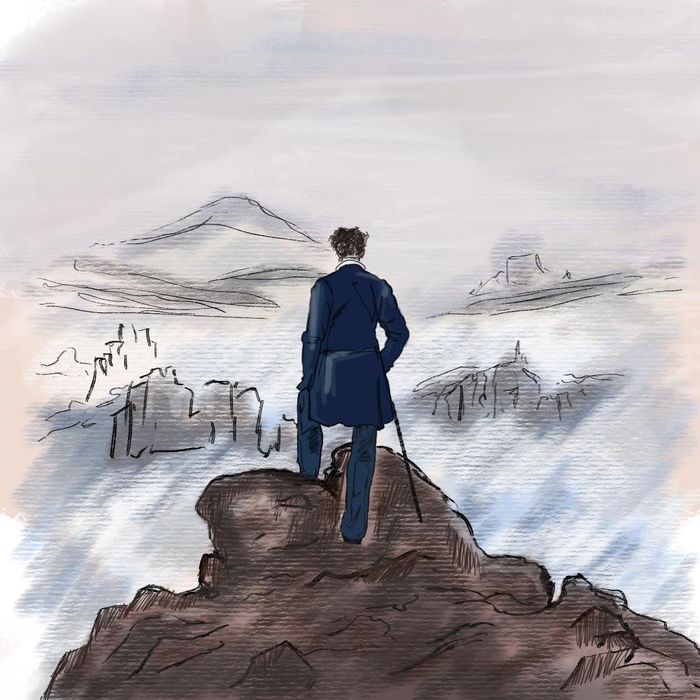Short stories for short attention spans
To overcome lockdown-driven exhaustion, Lily Isaacs recommends short story collections to help rediscover the enjoyment of reading, piece by piece.

During the first lockdown, I had grand ambitions to conquer the titans of Russian literature. Two lockdowns later, I can barely get through a fifteen-second TikTok video without getting distracted. I miss the feeling of flipping through real books, and even more than that, I miss the feeling of actually wanting to read them – and though there’s nothing quite like the self-importance of finishing off a capital B book, if you have neither the time nor the concentration for that, forget “reading for pleasure” and try some short spurts of reading for your ego.
"This is not about growing your brain, but about rewarding it - it's about achieving the act of reading, if just a little."
Short stories give you something to slink away and contemplate, even if just for twenty minutes. Read them outside and gaze over their pages at your fellow humans, affirming your status as the neighbourhood intellectual; read them inside and bore your parents (or your tinder matches) with your newfound literary passion. These are some of my favourites:
Jhumpa Lahiri

Jhumpa Lahiri’s Unaccustomed Earth (2008) and Interpreter of Maladies (1999) are jaw-dropping, spine-tinglingly collections documenting the lives of generations of Indian Immigrants in America. Lahiri became the youngest winner of the Pulitzer Prize in 2000, and when you read her work, it’s not difficult to see why – her stories strike you with profound objectivity and total intimacy, and in surprisingly few words, she builds impossible depth into her characters, getting you to fall in love with every new person she introduces. A few of Lahiri’s stories are intricately connected, but most are just as good if read stand-alone. If you want to commit, though, try ‘Once in a Lifetime,’ ‘Year’s End,’ or ‘Going Ashore,’ which follow the lives of two children growing up, breaking down, and falling in love.
David Sedaris
David Sedaris’s When you are Engulfed in Flames (2008), Dress Your Family in Corduroy and Denim (2004), and Me Talk Pretty One Day (2000) are the books that I have re-read the most in my life. Sedaris’s wit is addictive, and reading his writing feels like shovelling down spoonfuls of ice cream; his humour is cold but deliciously comforting. He introduces you to the many eras of his life - his adolescence in small-town North Carolina, his time working as an Elf at a department store, quitting smoking, performance art, moving to France. Read them when you are sad, and feel a bit better.
J.D. Salinger

J.D. Salinger’s For Esme with Love and Squalor, and Other Stories (1953) features two of his most famous stories – ’For Esme,’ and ‘A Perfect Day for a Bananafish’ – and you can buy it with a lovely mint green cover that makes whatever is inside it worth your while. Aesthetics aside, my favourite story in the book is 'Teddy,' where Salinger writes the child-genius Theodore 'Teddy' McArdle, who is seeking spiritual enlightenment on a cruise ship. There’s nothing quite like Salinger’s characters; they roam the upper echelons of the American forties, lounge in white-porched houses, and they make you laugh - but there’s always something lurking under the surface, something waiting to bite.
Alice Munro
Alice Munro’s stories in Runaway (2003) are quite long, I grant you, but they are worth every word. It is difficult to synopsise Munro’s stories because they feel like entire lives – like brushing past someone on the street and then, suddenly, being privy to their whole brain, to their anxieties, to their pain, to their joy. It’s an unnerving experience. At the centre of the collection are three connected stories about a woman called Juliet, one dissecting her marriage, one about returning home to her parents, and one about her daughter, who has run away to join a cult. If you just want to dip your toe in Munro, read these three stories. They’re unforgettable.
If you don’t want to buy a book, you can have a scroll through the New Yorker fiction section. Look up your favourite writer, as there’s a chance they’re on there – all of the writers mentioned here are. If you want, try ‘Heirlooms’ by Bryan Washington to get you started – it’s utterly beautiful, and if you are feeling especially lazy, the author’s voice will read it out to you. Walk around with fiction in your ears instead of music, for a change.
"Like brushing past someone on the street and then, suddenly, being privy to their whole brain."
Reading short stories is all about balance. Read one when you’ve given up on a lecture, read one with a glass of wine, read one with your favourite TV series playing in the background, I don’t care. This is not about growing your brain, but about rewarding it - it's about achieving the act of reading, if just a little. It’s about getting out of your own life for half an hour, and into someone else’s. Sometimes, that is everything.
 Features / Should I stay or should I go? Cambridge students and alumni reflect on how their memories stay with them15 December 2025
Features / Should I stay or should I go? Cambridge students and alumni reflect on how their memories stay with them15 December 2025 News / Cambridge study finds students learn better with notes than AI13 December 2025
News / Cambridge study finds students learn better with notes than AI13 December 2025 News / Dons warn PM about Vet School closure16 December 2025
News / Dons warn PM about Vet School closure16 December 2025 News / News In Brief: Michaelmas marriages, monogamous mammals, and messaging manipulation15 December 2025
News / News In Brief: Michaelmas marriages, monogamous mammals, and messaging manipulation15 December 2025 Comment / The magic of an eight-week term15 December 2025
Comment / The magic of an eight-week term15 December 2025









